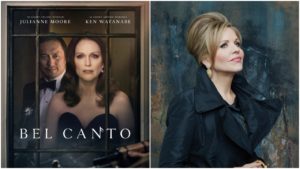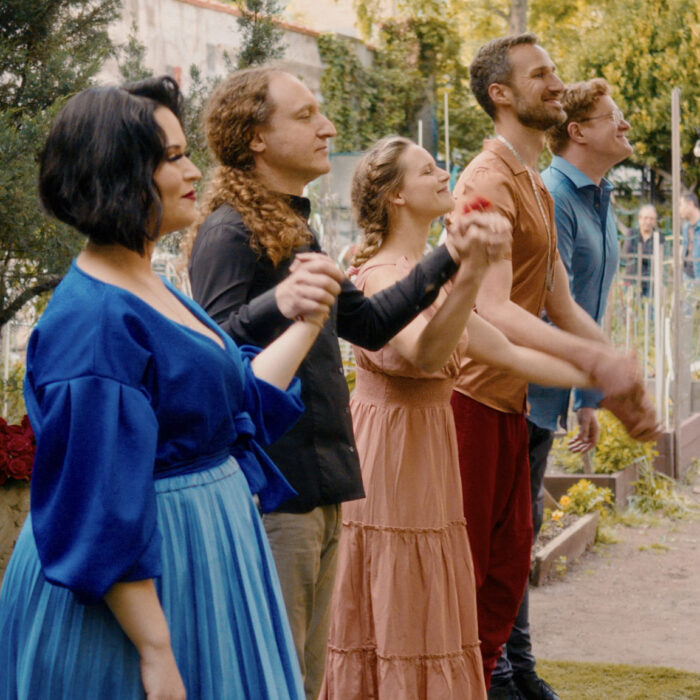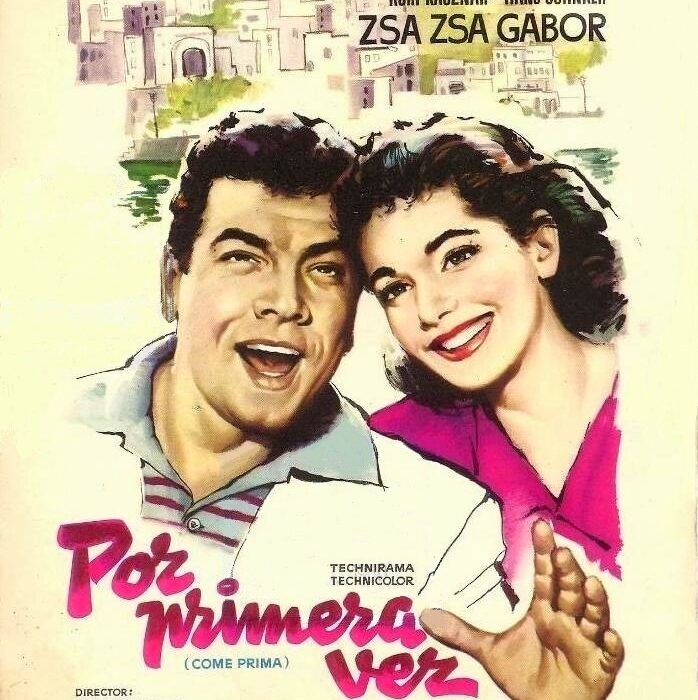
Opera Meets Film: How The ‘Bel Canto’ Film Explores Relationships Between Audience & Artist, Renée Fleming’s Cultural Status
By David SalazarMAJOR SPOILERS AHEAD!
“Opera Meets Film” is a feature dedicated to exploring the way that opera has been employed in cinema. We will select a section or a film in its entirety, highlighting the impact that utilizing the operatic form or sections from an opera can alter our perception of a film that we are viewing. This week’s installment features Paul Weitz’s adaptation of Ann Patchett’s “Bel Canto.”
Ann Patchett’s “Bel Canto” has come to the forefront in recent years with the world premiere of an opera based on the work and now a movie dedicated to the subject released on Sept. 14, 2018 and starring Julianne Moore and Ken Watanabe, among others.
The book itself, set amidst political turmoil, is based on the Japanese embassy hostage crisis in Peru. The major difference, however, is that Patchett’s central figure is opera singer Roxanne Coss. Through the soprano, the work explores how art can humanize even those we feel are beyond that, with Coss able to cross language barriers and political divide.
Artist & Audience
In the film, Coss’ art is of major import. It is contextualized across two different storylines. The first of these is her burgeoning romance with Hosokawa. As the film opens, we hear Coss’ voice (Renée Fleming’s, actually) sing the “Song of the Moon” from Dvorak’s “Rusalka” across the rising sun in Japan. A few shots later, we realize that Hosokawa is the one listening to the recording and we make the connection that he truly enjoys Coss’ voice.
This establishes the connection between the two from the off, allowing the romance between them to flourish seamlessly. We already know of his admiration for her and their actions throughout the film only further this relationship. Of course, it ends in [SPOILER] tragedy, Hosakawa gunned down by the government’s military.
At the close of the film, Coss sings the “Song of the Moon,” this time at the Metropolitan Opera. The film’s editing explores her spiritual connection with Hosakawa, calling back to the Hosakawa’s spiritual connection to her at the start of the film. This alone explores the relationship between the artist and her audience, emphasizing how each inspires the other and how their connection is beyond mere interaction. Despite never knowing them fully as a human being, our understanding of him or her as an artist is a unique bond that transcends time and space. The yearning qualities of Rusalka’s famous song only emphasize this.
Coss’ singing also comes to the fore in the political context of the story. Early on in the film, she is forced by the terrorists to sing for the masses to emphasize the importance of preserving the lives of the hostages. Her selection? “Vissi d’arte” from “Tosca.”
Of course, the choice here is a circumstance of life and art communing. In the Puccini opera, Tosca is an emotional prisoner of the ruthless head of police Scarpia and she sings of how she has dedicated her life to art and love and does not deserve the fate she is forced to endure. Here, Coss is a hostage who has never truly wronged anyone. Of course, this diva, unlike Tosca, is portrayed as a cold and callous woman who only took the job for money. However, after this scene, her singing captivates the terrorists and the film takes a more hopeful turn at that point. Contrast that with “Tosca,” where her pleas are largely ignored by Scarpia, the work taking on a devastating turn.
Transcendence & Fleming’s Status
But the film isn’t only about those specific passages that are explored. Fleming’s voice pops up throughout the film’s score, often in melody without text. In a film that includes a translator as a major character, the choice of having the famed soprano sing a textless melody emphasizes music as its own language that unifies them all.
But we can’t ignore the choice of Fleming here for the film. The soprano has appeared in a number of movies throughout her career, but even so, she’s not always getting vocal appearances at every major film that requires opera. But the question, of course, must have been – who performs as Julianne Moore’s voice? Next to Meryl Streep (who is markedly older than the age of Roxanne Coss), Moore is arguably THE American actress of the current generation. Having her sing the role of a diva would require a major soprano to fill that voice. Fleming has always been a major opera star and those that have followed her career know that she’s been a major force for years. Ironically, her opera career is “over,” but she’s arguably never been more famous in popular culture and her inclusion in the film is a true reflection of that.
Categories
Opera Meets Film

